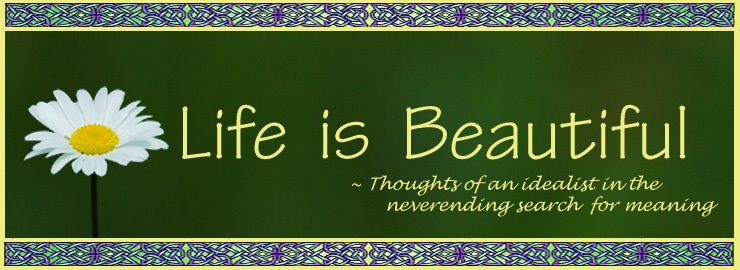
(image from: OneBluePebble on Flickr)
Some of you know I have an obsession with Harry Potter. For those of you who didn't know-- now you do. Yes, I'm a 40 year-old (gulp) mom who loves the books more than my kids do. I hid my obsession for years because, well, I was embarrassed. It's not exactly the kind of thing I could talk about during the law firm events that Jason and I attend, or at formal charity balls in Philadelphia. (Though I found one attorney who also loves the books, and another attorney and his wife were surprised when I knew all about the Yule Ball/ Wizard Rock Concert that their daughter was attending that night...)
(here's some mood music...)
You see, I'm not just the average Potter fan. I didn't just enjoy the books and share them with my kids. I've read each book at least 7 times. My copy of Order of the Phoenix still has post-its riddling the pages from the months that I spent in an online reading group discussing the clues and literary devices that Jo used. And yes, I refer to the well-known author as she requested her fans to do-- as "Jo".
When my daughter was 4, my most proud "mommy moment" was when she pointed her finger at my mother-in-law and shouted "Silencio!" (My mother-in-law laughed after I explained what the spell did.) Here's a photo of the same daughter sporting her Dark Mark tattoo:

As many folks did, I attended the midnight release party for Deathly Hallows. But I drove home with tears in my eyes while clutching my copy, because it marked the end of an era. The next morning my deluxe copy was waiting in my mailbox (pre-ordered from Amazon the day it was available). And they now sit on my bookshelf next to the Bloomsbury "adult" version of Half-Blood Prince that I had shipped from the UK.
I not only signed up my kids and I to attend a Harry Potter conference that came to Philadelphia, I signed up within the first two weeks that the conference was announced (nine months early) because I browse fansites daily. And, I wasn't just an attendee. I volunteered to organize the opening and closing feasts and created and ran the Tri-Wizard Tournament. While there I was very proud of my oldest daughter who was chosen to compete (for our "House") in the Jeopardy-style trivia contest because she had the most questions correct on her qualifying quiz for her age group. And I was shocked when my name was announced as the adult contestant for our House! (No-- I didn't win, but I did get to meet the guys who run Mugglenet and their weekly podcast, Mugglecast!-- that's like meeting the Beatles to Harry Potter fans....)
So, now you understand why I call myself "obsessed."
The question is why. I was never the type to be such a fan. I didn't have a favorite rock group, movie, or celebrity when I was a teenager. There was no precedent for me to become obsessed over anything.
I was given the Harry Potter books for Christmas in 2003 (at the time only 5 had been published). Reading became an escape from my mommy duties ( the girls were ages 2 and 4). I quickly became swept up into the world of Hogwarts, and read all five within a month. Then I started to re-read them, because I wasn't ready to leave the wizarding world. I remember the day that I googled Harry Potter. I didn't know about "fandoms" or news blogs or fanfiction. Wow-- what I found online that day changed my life.
What draws me to the books is the warm characters, the universal themes, the humor and the darkness, the mysteries, the complexity of so many subplots woven together seamlessly, and last but not least, how the books celebrate motherhood. Yes, I've used many references from HP while parenting. What a great way to describe that gray area between good and evil: Dolores Umbridge. And how about explaining ethnic cleansing to an eight year old.... The sorting hat is a wonderful device to explain how we often categorize people but that unity makes us stronger. And Dumbledore provides many pearls of wisdom: "It is our choices, Harry, that show what we truly are, far more than our abilities" (from Chamber of Secrets) and "It takes a great deal of bravery to stand up to our enemies, but just as much to stand up to our friends" (from Sorcerer's Stone). Not to mention all of the fabulous Latin roots that are used for spells through the books!
I am tickled every time I hear that educators are using the books, from elementary to college-level. There were wonderful discussions at Enlightening led by scholars (most of the presenters had PhDs and many were Ivy League graduates): including "Harry Potter and the Denial of Due Process" (taught by a law professor), "Motherhood in the HP Canon", a class on psychological processes represented in the books, and a discussion about the global perspective : how HP engages people from diverse cultural and ethnic backgrounds. Several weeks ago I found this article (warning: it contains spoilers for anyone who hasn't read the books) about a freshman seminar being taught at Swarthmore College. The article also states:
"This is one of several "Harry Potter"-themed courses being taught on a collegiate level throughout the country — and not all of them are in English departments. Yale has one that uses "Harry Potter" as a prism for theology. Georgetown uses the story to look at international relations. Frostburg State University in Maryland employs the series to teach Physical Science 100. And more classes just keep popping up."
So, now I'm not so embarrassed by my obsession. I feel validated by others who aren't just reading the books to their children at bedtime.
And, I can now share with you that my first thought on Halloween morning will be
EDIT: D'oh! Janey brought to my attention that I must've lost my mind-- perhaps I can blame it on inhaling too much Lysol (see The Clarity of Night if you want to hear about the state of the Evans household....) Harry's birthday is July 31st, just like Jo's. Halloween is the day that Voldemort murdered his parents. So I'll just have a moment of silence for Lily and James.



